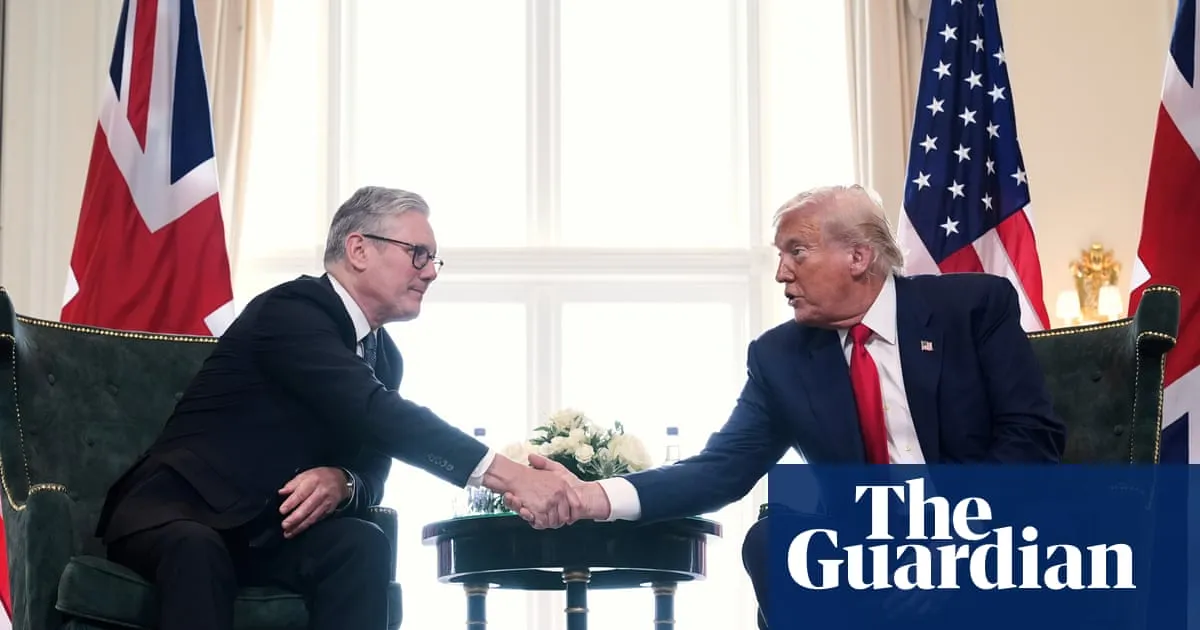
During his recent visit to Britain, Donald Trump made a significant statement urging Israel to allow “every ounce of food” into Gaza, acknowledging for the first time the reality of “real starvation” in the region. This remark came as a stark contrast to Israeli Prime Minister Benjamin Netanyahu, who had previously claimed that accusations of Israel causing hunger in Gaza were a “bold-faced lie.”
The humanitarian crisis in Gaza has escalated, with reports from the UN and various humanitarian organizations attributing the dire situation to Israel’s blockade, which restricts almost all aid from entering the territory. As pressure mounts on Trump to intervene, reports indicate that dozens of Palestinians have died from hunger in recent weeks.
In a series of meetings with UK Labour leader Keir Starmer, including an extensive press conference at Trump’s Turnberry golf resort in Scotland, the US president expressed his growing impatience with Russian President Vladimir Putin regarding the ongoing war in Ukraine. Trump announced that he would impose sanctions on Russia’s trading partners within 10 to 12 days if a ceasefire was not reached.
Trump also criticized Netanyahu, stating that Israel holds “a lot of responsibility” for the humanitarian crisis in Gaza, directly rebuking the Israeli leader’s assertion that there was no starvation occurring. In his candid remarks, Trump emphasized, “Based on television, I would say not particularly, because those children look very hungry.” He reiterated the urgent need for food aid, saying, “I want to make sure they get the food, every ounce of food.”
While Trump did not shy away from criticizing Hamas for not releasing remaining hostages, he suggested that he had advised the Israeli government to reconsider its approach to the conflict. He stated, “I told Israel, I told Bibi, that you have to now maybe do it a different way.” This shift in dialogue highlights the increasing complexity of the situation in Gaza and the international calls for aid.
In the same press conference, Starmer described the British public's reaction to the situation in Gaza, calling it an “absolute catastrophe” and emphasizing the urgent need for a ceasefire. The UK government announced it would work with Jordan to facilitate airdrops of aid into Gaza, as Israel temporarily suspended fighting in some areas to allow for humanitarian assistance.
Starmer is also facing pressure from senior cabinet ministers and over 220 MPs to recognize Palestine as a state, following France’s announcement to do so at the upcoming UN General Assembly. Trump, however, dismissed this idea but indicated that he would not oppose the UK or other allies moving forward with recognition.
On the same day as Trump’s statements, approximately 100 protesters gathered in Balmedie, near Trump’s Aberdeenshire golf course, voicing their discontent by waving Palestinian flags and chanting slogans against Trump. Many protesters cited the humanitarian crisis in Gaza as their primary concern, while others expressed dissent over Trump’s policies on immigration and international aid.
One protester, Kay Collin, a retired modern studies teacher, stated, “Watching what is happening in Gaza, if it was happening to my grandchildren I would hope other people would stand up for them.” Another demonstrator, Jenna Harpin, criticized the financial resources spent by local and national governments to host Trump, especially during a time when essential services are facing cuts.
As tensions rise and the humanitarian situation in Gaza worsens, Trump's comments and the subsequent protests highlight the urgent need for action and dialogue surrounding this complex issue.